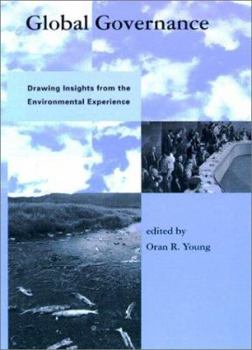Global Governance: Drawing Insights from the Environmental Experience
(Part of the Global Environmental Accord: Strategies for Sustainability and Institutional Innovation Series)
Select Format
Select Condition 
Book Overview
Much of our experience with innovative approaches to governance at the international level involves natural resources and the environment. Whereas the Cold War bred an intense concern with the preservation of existing institutions, the emerging environmental agenda has prompted an awareness of the need for new arrangements to achieve sustainable human/environment relations. Especially notable is the growth of specific regimes to deal with matters such as endangered plants and animals, migratory species, airborne pollutants, marine pollution, hazardous wastes, ozone depletion, and climate change. Nonstate actors have made particularly striking advances in the creation and maintenance of these environmental regimes.T he contributors to this volume draw upon the experiences of environmental regimes to examine the problems of international governance in the absence of a world government. In the process, they address four central questions: Has regime analysis produced a distinctive conception of governance that can be applied to the solution of collective-action problems at the international level? Can we identify the conditions necessary for international "governance without government" to succeed? Does the emergence of regimes in specific issue areas have broader consequences for the future of international society? Can we generalize from experience with environmental issues to a broader range of international governance problems?
Contributors
Thomas Bernauer, Lee Botts, Helmut Breitmeier, Paul Muldoon, M. J. Peterson, David Reed, Olav Schram Stokke, Marcia Valiante, Konrad von Moltke, Paul Wapner, Oran R. Young
Related Subjects
Conservation Earth Sciences Environment Environmental Policy Environmental Science Nature Nature & Ecology Political Science Politics & Government Politics & Social Sciences Public Affairs & Administration Public Affairs & Policy Science Science & Math Science & Scientists Science & Technology




